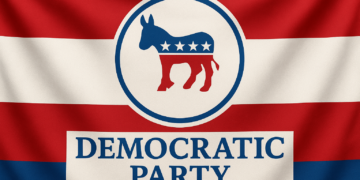Universal Basic Income (UBI) is an innovative idea gaining traction worldwide. UBI proposes giving every citizen a fixed monthly payment, regardless of employment status, to ensure financial security and reduce poverty.
What is Universal Basic Income?
UBI is designed to provide a guaranteed income to every individual, not just households. The goal is to ensure that everyone has enough to meet their essential needs, such as food, housing, and healthcare. Proponents argue that UBI can reduce poverty, provide financial security, and give people the freedom to pursue education, start businesses, or take on creative projects without the constant worry of financial instability.
How Much Would I Get Paid?
The amount often discussed is around $1,000 per month per person, which could help cover basic living expenses. This payment would be given to adults, and some proposals even include payments to children at a reduced rate. The money received through UBI can be spent as the recipient sees fit, providing flexibility and autonomy.
Income Flexibility
One of the appealing aspects of UBI is that it does not restrict recipients from earning additional income. People can still work and receive other forms of income, allowing them to improve their financial situation without losing their basic safety net.
Potential Impact on Social Services
To fund UBI, it has been suggested that existing social programs like Social Security, Medicaid, subsidized housing, and food stamps could be replaced. This idea is controversial. Proponents argue that UBI is a more straightforward and efficient way to support citizens, reducing bureaucracy and providing equal support to everyone [2]. Critics, however, worry that vulnerable populations might lose the essential targeted support they currently receive from these programs.
Moving Toward a Cashless Society
Another aspect to consider is the potential push toward a cashless society. UBI payments would likely be distributed electronically, encouraging digital transactions and reducing reliance on cash. This shift could streamline financial systems but also raises concerns about privacy and accessibility for those less comfortable with digital technology.
Pros and Cons
Pros:
- Economic Stability: UBI could stimulate the economy by increasing consumer spending and providing a safety net during economic downturns.
- Reduced Poverty: It can significantly reduce poverty and provide financial security for all citizens [4].
Cons:
- Cost: Funding UBI on a national scale is a significant challenge and might require substantial tax increases or reallocating existing social service funds.
- Work Incentive Concerns: There are worries that a guaranteed income might reduce the incentive to work, though evidence suggests this might not be a significant issue [6].
Moving Forward
The future of UBI in the U.S. remains uncertain. While it offers many potential benefits, it also poses significant challenges and trade-offs.
Pilot programs and small-scale studies continue to provide valuable insights, but a national rollout would require significant political will and public support. As discussions around UBI continue, it remains crucial to consider both the positive impacts and the potential downsides of such a transformative policy that could reshape American society.


















































































